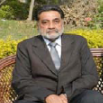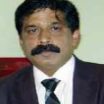International Journal of Modern Education and Computer Science (IJMECS)
IJMECS Vol. 5, No. 9, 8 Sep. 2013
Cover page and Table of Contents: PDF (size: 213KB)
Mathematical Framework for A Novel Database Replication Algorithm
Full Text (PDF, 213KB), PP.1-10
Views: 0 Downloads: 0
Author(s)
Index Terms
Database replication, throughput, average delay
Abstract
In this paper, the detailed overview of the database replication is presented. Thereafter, PDDRA (Pre-fetching based dynamic data replication algorithm) algorithm as recently published is detailed. In this algorithm, further, modifications are suggested to minimize the delay in data replication. Finally a mathematical framework is presented to evaluate mean waiting time before a data can be replicated on the requested site.
Cite This Paper
Sanjay Kumar Yadav, Gurmit Singh, Divakar Singh Yadav, "Mathematical Framework for A Novel Database Replication Algorithm", International Journal of Modern Education and Computer Science (IJMECS), vol.5, no.9, pp.1-10, 2013. DOI:10.5815/ijmecs.2013.09.01
Reference
[1]R.Elmasri and S. B. Navathe. Fundamentals of Database Systems [B]. The Benjamin/Cummings Publishing Company, Inc., 1994.
[2]Fredrik Nilsson, Patrik Olsson. A survey on reliable communication and replication techniques for distributed databases [B].
[3]A. Dogan, A study on performance of dynamic file replication algorithms for real-time file access in data grids, [J] Future Generation Computer Systems 2009, 25 (8): 829–839 .
[4]R.-S. Chang, P.-H. Chen, Complete and fragmented selection and retrieval in data grids, [J] Future Generation Computer Systems, 2007, 23: 536–546.
[5]Y. air Amir, Alec Peterson, and David Shaw. Seamlessly Selecting the Best Copy from Internet-Wide Replicated Web Servers [C]. Proceedings of the International Symposium on Distributed Computing (Disc98), LNCS 1499, pages 22-33 Andros, Greece, September 1998.
[6]I. Foster, K. Ranganathan, Design and evaluation of dynamic replication strategies a high performance Data Grid, [C] in: Proceedings of International Conference on Computing in High Energy and Nuclear Physics, China, September 2001.
[7]M. Tang, B.S. Lee, C.K. Yao, X.Y Tang, Dynamic replication algorithm for the multi-tier data grid, [J] Future Generation Computer Systems 2005, 21 (5) : 775–790.
[8]M. Shorfuzzaman, P. Graham, R. Eskicioglu, Popularity-driven dynamic replica placement in hierarchical data grids, [C] in: Proceedings of Ninth International Conference on Parallel and Distributed Computing, Applications and Technologies, 2008, 524–531.
[9]R.-S. Chang, H.-P. Chang, Y.-T. Wang, A dynamic weighted data replication strategy in data grids, [J] The Journal of Supercomputing , 2008, 45 (3) : 277–295
[10]A.R. Abdurrab, T. Xie, FIRE: a file reunion data replication strategy for data grids, [C] in: 10th IEEE/ACM International Conference on Cluster, Cloud and Grid Computing, 2010, 215–223.
[11]K. Sashi, A.S. Thanamani, Dynamic replication in a data grid using a modified BHR region based algorithm, [J] Future Generation Computer Systems 2010, 27 :202–210.
[12]N.Saadat and A.M. Rahmani. PDDRA: A new pre-fetching based dynamic data replication algorithm in data grids. [J] Springer: Future Generation Computer Systems, 2012, 28:666-681.
[13]Salman Abdul Moiz, Sailaja P., Venkataswamy G., Supriya N. Pal. Database Replication: A Survey of Open Source and Commercial Tools. [J] International Journal of Computer Applications (0975 – 8887) 2011, 13(6), 1-8.
[14]Heinz Stockinger. Data Replication in Distributed Database Systems, 1999 [B].
[15]Marius Cristian MAZILU, "Database Replication", [J] Database Systems Journal 2010, 1(2), 33-38.
[16]Mark A.Linsenbardt, Shane Stigler. McGraw-Hill/Osborne Media Book SQL Server2000Administration-Chap.10,’.Replication’ [B].
[17]Microsoft MSDN Library - http://msdn.microsoft.com [W]
[18]B. Kemme, F. Pedone, G. Alonso, and A. Schiper. Processing transactions over optimistic atomic broadcast protocols. [C] In Proceedings of the International Conference on Distributed Computing Systems, Austin, Texas, June 1999.
[19]M. Raynal, G. Thia-Kime, and M. Ahamad. From serializable to causal transactions for collaborative applications. [R] Technical Report 983, Institut de Recherche en Informatique et Systèmes Aléatoires, Feb. 1996.
[20]K. P. Birman. The process group approach to reliable distributed computing. [J] Communications of the ACM, 1993, 36(12):37–53.
[21]V. Hadzilacos and S. Toueg. Fault-tolerant broadcasts and related problems. [B] In S. Mullender, editor, Distributed Systems, chapter 5. adwe, second edition, 1993.
[22]Sanjay Kumar Tiwari et al. Distributed Real Time Replicated Database: [J] Concept and Design International Journal of Engineering Science and Technology (IJEST) ISSN: 0975-5462 230, 2011 3(6) 4839-4849.
[23]K. P. Birman and T. A. Joseph. Exploiting virtual synchrony in distributed systems. [C] In Proceedings of the 11th ACMSymposium on OS Principles, pages 123–138, Austin, TX, USA, Nov. 1987. ACM SIGOPS, ACM.
[24]K. P. Birman, A. Schiper, and P. Stephenson. Lightweight causal and atomic group multicast.[J]ACM Transactions on Computer Systems, 1991, 9(3):272–314.
[25]F. B. Schneider. Implementing fault-tolerant services using the state machine approach:[J] A tutorial. ACM Computing Surveys, 1990, 22(4):299–319.
[26]R. Guerraoui and A. Schiper. Software-based replication for fault tolerance.[J] IEEE Computer, 1997, 30(4):68–74.


